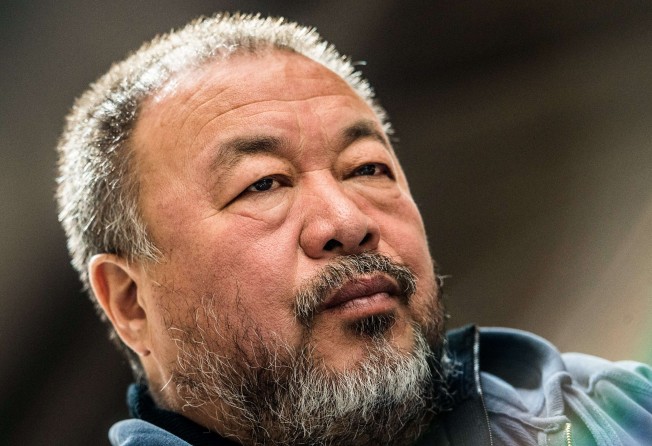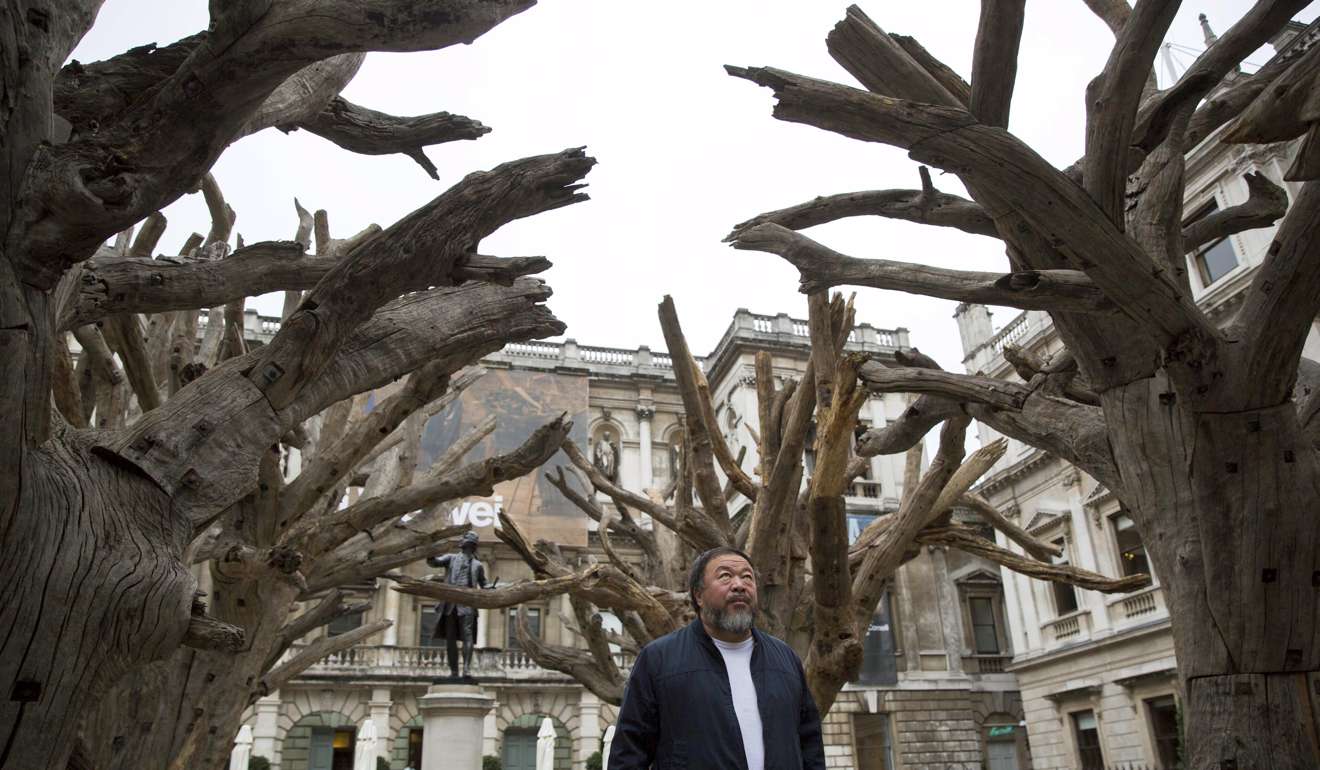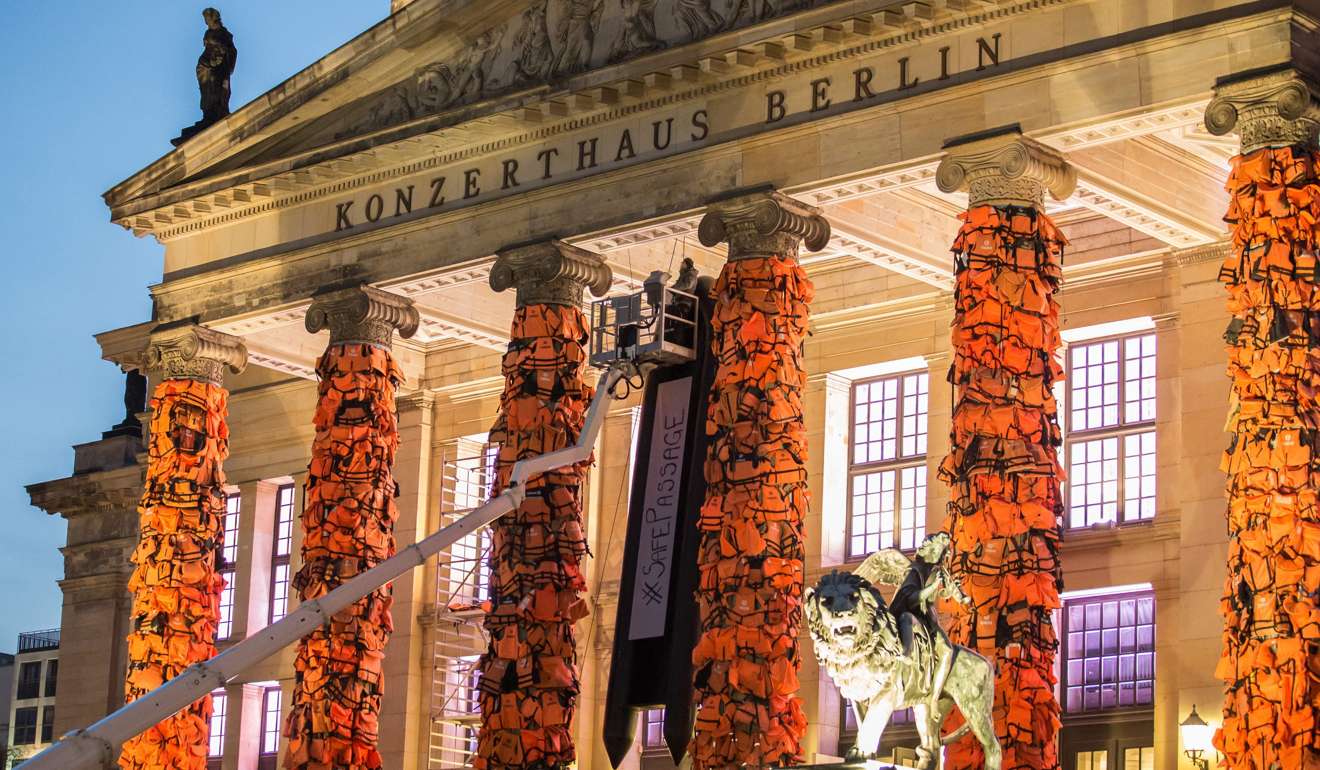A post shared by Ai Weiwei (@aiww) on Apr 17, 2017 at 9:23pm PDT
‘One country, one system?’ Chinese artist Ai Weiwei takes to social media after HSBC rejects application
Bank insists it does not decline to open bank accounts because of individuals’ political views

Chinese dissident artist Ai Weiwei has ridiculed the “one country, two systems” principle after saying HSBC refused him a bank account at the bank’s Hong Kong headquarters on Tuesday.
In an Instagram post, the 59-year-old critic of the Chinese government said: “I’m in Hong Kong, trying to open an account at HSBC. My request was refused due to a ‘commercial decision’ from the headquarter (sic). This has not happened to me in Beijing. Maybe ‘one country, one system’ is better.”
The social media post appeared with a picture of the HSBC headquarters in Central.
In a Twitter reply to one social media user regarding the incident, Ai – a painter, sculptor, photographer and filmmaker known for art that confronts social and political issues – said he was trying to open a personal account.
The Instagram post prompted varied reactions from the artist’s followers. One suggested it was “self-censorship”, while another said: “It’s capitalism. Bankers are at liberty to make [their] own decisions. It has nothing to do with the system.”
Some suggested Ai try another bank.
A spokesman from HSBC declined to comment on the case specifically.
“We are not able to discuss customers or account applications for reasons of confidentiality. However, HSBC does not decline to open bank accounts because of individuals’ political views,” the spokesman said.

In recent years, locals and foreigners have faced increasingly strict background checks and vetting from banks when trying to open accounts due to the industry’s anti-money-laundering and counterterrorism efforts.
In March last year, student activist Joshua Wong Chi-fung said HSBC rejected his application to open a joint savings account to handle donations and the daily business of his political party Demosisto. The bank declined to comment on that case.

The Hong Kong Institute of Chartered Secretaries surveyed 434 company secretaries from July to August last year. An overwhelming 98 per cent of respondents said it was difficult for firms to open bank accounts in the city.
Following that, the Hong Kong Monetary Authority issued a circular in September reminding financial institutions to strike a balance between exercising anti-money-laundering and counterterrorism controls and providing business-friendly services.

The banks argued they were enforcing stricter international anti-fraud regulations to protect the city’s status as a global business centre.
The banking watchdog’s deputy chief executive Arthur Yuen Kwok-hang said in September there was a global trend among banks towards tighter vetting for non-profit organisations, including NGOs, charitable organisations and political parties, seeking to open company accounts.
He added that banks were concerned about the sources of funds they received and assessing the risk was difficult.